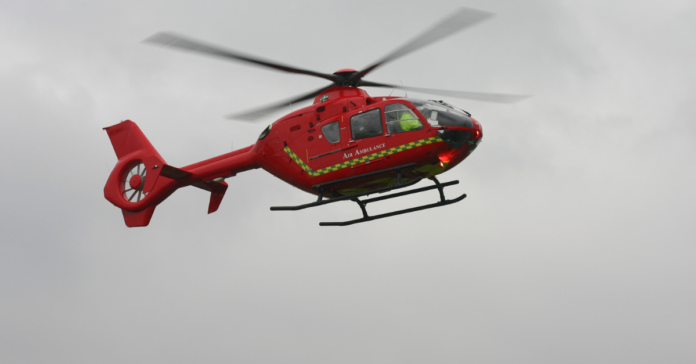Two Wales Air Ambulance bases face closure in Welshpool and Caernarfon, to be replaced by a new hub in north Wales, following recommendations by the Emergency Medical Retrieval and Transfer Service (EMRTS) ratified by the NHS Wales Joint Commissioning Committee (JCC).
The precise location of the new base, slated for central north Wales along the A55, is pending. Expected to commence operations in 2026, the move aims to improve response times, enabling approximately 140 additional emergency calls yearly. Despite the projected benefits, opposition has surfaced, particularly in Powys, where concerns about access to emergency services in rural areas linger. Public feedback overwhelmingly from Powys, with a petition garnering over 30,000 signatures, underscores community apprehension.
The JCC’s approval of the recommendations, albeit with dissent from Powys Teaching Health Board, signifies a contentious decision. Included in the recommendations is the provision of a specialised road-based service tailored for remote and rural regions.
In response to the proposed closure of the Wales Air Ambulance bases in Welshpool and Caernarfon, local communities are rallying to voice their concerns. Campaigners in Powys fear that the relocation could leave remote and rural areas without critical emergency services. With Powys residents accounting for the majority of responses in recent public engagements, it’s evident that the potential impact on their access to healthcare is a pressing issue.

Moreover, the decision by the NHS Wales Joint Commissioning Committee (JCC) to proceed with the closures, despite opposition from Powys Teaching Health Board, has ignited further debate. While the move aims to enhance efficiency and response times, the apprehension surrounding the transition highlights the need for transparent communication and careful consideration of the consequences.
In light of these developments, stakeholders are calling for comprehensive reassurances regarding alternative provisions, particularly for vulnerable populations in remote areas.
As discussions continue, it’s imperative that the voices of all stakeholders, including residents of Powys and other rural regions, are heard and taken into account. Balancing the need for efficiency with ensuring equitable access to emergency healthcare remains a pivotal challenge for healthcare policymakers and officials.

